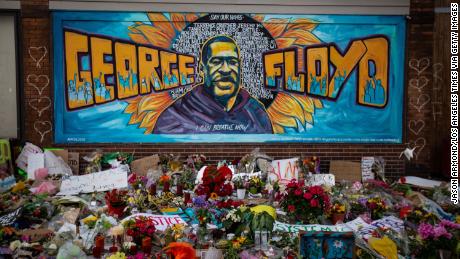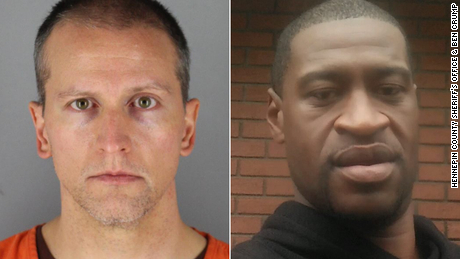The charge reinstated by the judge gives prosecutors another path to convict the former officer accused of killing George Floyd
The added charge provides prosecutors a third potential pathway to conviction in the closely watched case at the heavily fortified Hennepin County Government Center.
“The charge of 3rd-degree murder, in addition to manslaughter and felony murder, reflects the gravity of the allegations against Mr. Chauvin,” Minnesota Attorney General Keith Ellison said in a statement. “We look forward to presenting all three charges to the jury.”
In court on Thursday, Chauvin’s defense attorney Eric Nelson argued that Noor’s case was factually and procedurally different than Chauvin’s interactions with Floyd, in which he knelt on Floyd’s head and neck area for an extended period. However, prosecutors argued that the judge was bound to follow the appeals court’s precedent in Noor.
Judge Cahill ruled Thursday morning that he accepted the appeals court’s ruling that the opinion in Noor’s case immediately set a precedent, and he ruled to reinstate the charge.
He added that the third-degree murder charge only applied to Chauvin and that the potential to reinstate the charge for the three other officers charged in Floyd’s death will be addressed at a later date.
“This charge has not come out of left field,” Cahill said Thursday. “It was originally charged. I think the defense has been aware that the state will take every opportunity to try and add it back.”
How we got here
The evidence presented by the state does not show that Chauvin’s actions were “eminently dangerous” to anyone but Floyd, he wrote at the time.
In Noor’s case, though, an appeals court ruled that third-degree murder can be applied to instances in which a person applies force to a single person.
Given that ruling, Ellison filed a motion last month asking a district court judge to reinstate the charge, saying that Noor’s sentencing set a new precedent. Appellate court Judge Michelle Larkin agreed, writing that the district court “erred” in denying the state’s motion to reinstate the charge in light of the Noor opinion.
CNN’s Chris Boyette contributed to this report.
![]()






